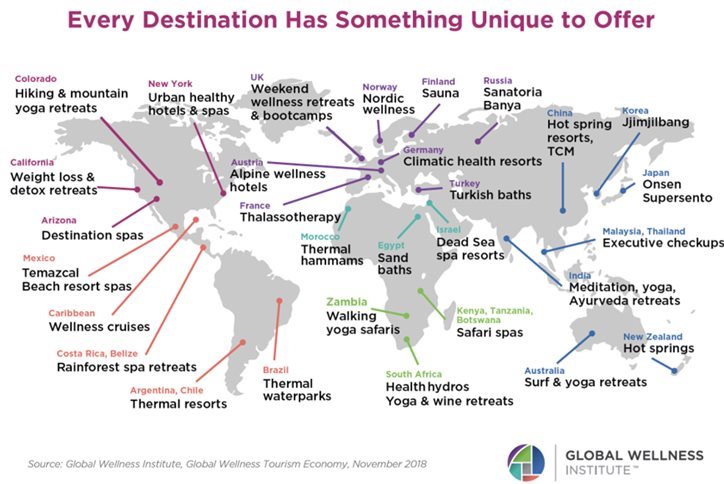
According to the Global Wellness Institute (GWI), wellness tourism is cited as a fast-growing tourism segment that has been growing by 6.5% annually (more than twice the growth rate for tourism in general).

Adele du Toit, spokesperson for the SA Rooibos Council (SARC) says South Africa’s breathtaking landscapes, vibrant culture and rich biodiversity, are well-positioned to emerge as a leading African wellness tourism destination. "One asset that stands out, is Rooibos – a potent botanical treasure unique to the country."
She says Rooibos presents a valuable opportunity for SA to differentiate itself in the competitive wellness tourism market. “By incorporating Rooibos into spa treatments, wellness retreats and culinary experiences, South African businesses can offer tourists a unique and authentic taste of local wellness traditions.
"Rooibos has long been celebrated for its antioxidant properties and numerous health benefits – from boosting immunity to promoting heart health and reducing stress. It has garnered a global following among wellness enthusiasts seeking natural remedies for modern-day ailments and has become a symbol of wellness and rejuvenation."
Against this backdrop, she believes the Rooibos industry stands poised to leverage its natural bounty to drive wellness tourism and boost the local economy in the following ways:
“Imagine waking up to the sight of lush Rooibos fields stretching as far as the eye can see, with the scent of Rooibos wafting through the air. Wellness retreats nestled among Rooibos plantations offer tourists a unique opportunity to immerse themselves in the serenity of nature while indulging in Rooibos-infused spa treatments, yoga sessions and meditation practices. These retreats provide a holistic experience that rejuvenates the body, mind and soul, drawing wellness seekers from around the globe to South Africa's doorstep.”
For the curious palate, Rooibos tasting tours offer an exploration of flavour and aroma, guided by experts who unveil the nuances of Rooibos varieties. "Visitors can sip on freshly brewed Rooibos, while learning about its cultivation, processing and health benefits. These immersive experiences not only showcase the country’s rich tea heritage, but also support local Rooibos farmers and tea/tisane artisans, creating a sustainable link between tourism and agriculture."
She says while many of the country’s luxury resorts and wellness retreats have embraced Rooibos as a cornerstone of their spa and wellness offerings, there is a compelling case for doing so. “Firstly, Rooibos possesses remarkable antioxidant properties, making it a natural contender for skincare. Its abundance in polyphenols helps combat free radicals, slowing down the ageing process and promoting radiant, youthful skin. Incorporating Rooibos extracts into facials or body wraps can revitalise and rejuvenate the skin, offering clients a holistic wellness experience.
"Rooibos also boasts anti-inflammatory properties, making it an ideal ingredient for soothing massages and aromatherapy sessions. Integrating Rooibos into spa therapies also aligns with the growing demand for sustainable and locally sourced ingredients.”
Beyond the teacup, Rooibos inspires culinary creativity, infusing dishes with its distinctive flavour profile and healthful properties. Culinary tours and cooking classes allow not only tourists, but also locals to discover the versatility of Rooibos in the kitchen, from savoury stews and marinades to sweet desserts and baked goods. By showcasing Rooibos as a culinary ingredient, SA's food tourism scene gains a unique selling point, attracting foodies eager to explore the country's vibrant gastronomic landscape.
“Wellness tourism holds immense potential to drive economic growth, promote sustainable development and showcase the country’s natural beauty to the world. By highlighting the ecological benefits of Rooibos cultivation and promoting sustainable practices within the wellness tourism sector, South Africa can further enhance its appeal as a responsible and forward-thinking destination for wellness-minded travellers worldwide,” says du Toit.